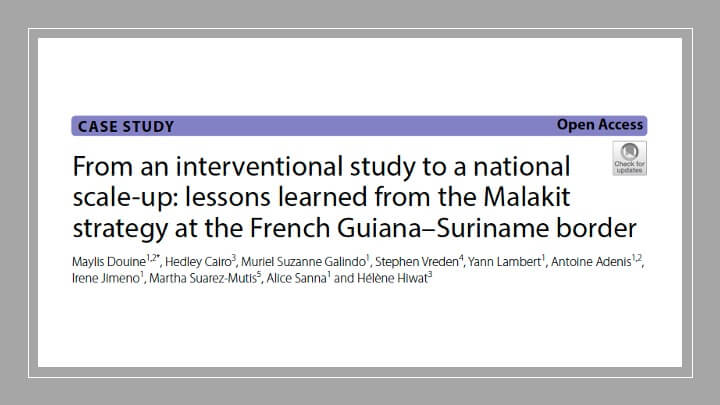Scaling up an experimental intervention is always a challenge. On the border between French Guiana, Brazil and Suriname, an interventional study demonstrated the effectiveness of distributing self-diagnosis and self-treatment kits (malakits) to control malaria in mobile and hard-to-reach populations.
Its integration into the Suriname’s National Malaria Elimination Plan after a two-year experiment faced numerous challenges, including human resources to cope with the additional workload of coordinators and to maintain the motivation of community health workers. The economic recession in Suriname, the Covid pandemic, and logistical issues also hampered the scale-up.
Finally, thanks to the commitment of stakeholders in Suriname and French Guiana, the integration of malakit distribution into the Surinamese national program was proved possible.
Retrouvez l’article ici!

